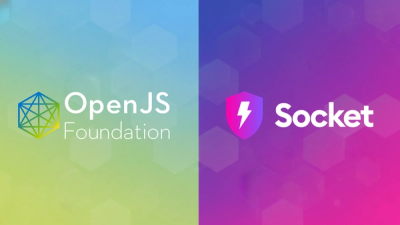
Research
SANDWORM_MODE: Shai-Hulud-Style npm Worm Hijacks CI Workflows and Poisons AI Toolchains
An emerging npm supply chain attack that infects repos, steals CI secrets, and targets developer AI toolchains for further compromise.
expandvars
Advanced tools
Expand system variables Unix style
This module is inspired by GNU bash's variable expansion features. It can be used as an alternative to Python's os.path.expandvars function.
A good use case is reading config files with the flexibility of reading values from environment variables using advanced features like returning a default value if some variable is not defined. For example:
[default]
my_secret_access_code = "${ACCESS_CODE:-default_access_code}"
my_important_variable = "${IMPORTANT_VARIABLE:?}"
my_updated_path = "$PATH:$HOME/.bin"
my_process_id = "$$"
my_nested_variable = "${!NESTED}"
NOTE: Although this module copies most of the common behaviours of bash, it doesn't follow bash strictly. For example, it doesn't work with arrays.
pip install expandvars
conda install -c conda-forge expandvars
from expandvars import expandvars
print(expandvars("$PATH:${HOME:?}/bin:${SOME_UNDEFINED_PATH:-/default/path}"))
# /bin:/sbin:/usr/bin:/usr/sbin:/home/you/bin:/default/path
For now, refer to the test cases to see how it behaves.
If you want to enable strict parsing by default, (similar to set -u / set -o nounset in bash), pass nounset=True.
# All the variables must be defined.
expandvars("$VAR1:${VAR2}:$VAR3", nounset=True)
# Raises UnboundVariable error.
NOTE: Another way is to use the
${VAR?}or${VAR:?}syntax. See the examples in tests.
If you want to temporarily disable strict parsing both for nounset=True and the ${VAR:?} syntax, set environment variable EXPANDVARS_RECOVER_NULL=somevalue.
This helps with certain use cases where you need to temporarily disable strict parsing of critical env vars, e.g. in testing environment, without modifying the code.
e.g.
EXPANDVARS_RECOVER_NULL=foo myapp --config production.ini && echo "All fine."
WARNING: Try to avoid
export EXPANDVARS_RECOVER_NULLbecause that will disable strict parsing permanently until you log out.
You can customize the variable symbol, escape character, whether to expand non-surrounded variables and data used for the expansion by using the more general expand function.
from expandvars import expand
print(expand("%PATH:$HOME/bin:%{SOME_UNDEFINED_PATH:-D:\\default\\path}", environ={"PATH": "/example"}, var_symbol="%", surrounded_vars_only=True, escape_char=""))
# %PATH:$HOME/bin:D:\default\path
To contribute, setup environment following way:
Then
# Clone repo
git clone https://github.com/sayanarijit/expandvars && cd expandvars
# Setup virtualenv
python -m venv .venv
source ./.venv/bin/activate
# Install as editable including test dependencies
pip install -e ".[tests]"
black . to auto format the code.pytest (pass --cov --cov-report html for browsable coverage report).FAQs
Expand system variables Unix style
We found that expandvars demonstrated a healthy version release cadence and project activity because the last version was released less than a year ago. It has 1 open source maintainer collaborating on the project.
Did you know?

Socket for GitHub automatically highlights issues in each pull request and monitors the health of all your open source dependencies. Discover the contents of your packages and block harmful activity before you install or update your dependencies.

Research
An emerging npm supply chain attack that infects repos, steals CI secrets, and targets developer AI toolchains for further compromise.

Company News
Socket is proud to join the OpenJS Foundation as a Silver Member, deepening our commitment to the long-term health and security of the JavaScript ecosystem.

Security News
npm now links to Socket's security analysis on every package page. Here's what you'll find when you click through.